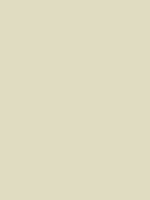#e0dcc1 Color Information
In a RGB color space, hex #e0dcc1 is composed of 87.8% red, 86.3% green and 75.7% blue. Whereas in a CMYK color space, it is composed of 0% cyan, 1.8% magenta, 13.8% yellow and 12.2% black. It has a hue angle of 52.3 degrees, a saturation of 33.3% and a lightness of 81.8%. #e0dcc1 color hex could be obtained by blending #ffffff with #c1b983. Closest websafe color is: #cccccc.
-
- R 88
- G 86
- B 76
-
- C 0
- M 2
- Y 14
- K 12
● #e0dcc1 color description : Light grayish yellow.
#e0dcc1 Color Conversion
The hexadecimal color #e0dcc1 has RGB values of R:224, G:220, B:193 and CMYK values of C:0, M:0.02, Y:0.14, K:0.12. Its decimal value is 14736577.
| Hex triplet | e0dcc1 | #e0dcc1 |
|---|---|---|
| RGB Decimal | 224, 220, 193 | rgb(224,220,193) |
| RGB Percent | 87.8, 86.3, 75.7 | rgb(87.8%,86.3%,75.7%) |
| CMYK | 0, 2, 14, 12 | |
| HSL | 52.3°, 33.3, 81.8 | hsl(52.3,33.3%,81.8%) |
| HSV (or HSB) | 52.3°, 13.8, 87.8 | |
| Web Safe | cccccc | #cccccc |
| CIE-LAB | 87.429, -3.145, 13.761 |
|---|---|
| XYZ | 65.958, 70.884, 60.657 |
| xyY | 0.334, 0.359, 70.884 |
| CIE-LCH | 87.429, 14.116, 102.873 |
| CIE-LUV | 87.429, 3.835, 20.7 |
| Hunter-Lab | 84.193, -7.498, 16.22 |
| Binary | 11100000, 11011100, 11000001 |
Color Schemes with #e0dcc1
Alternatives to #e0dcc1
Below, you can see some colors close to #e0dcc1. Having a set of related colors can be useful if you need an inspirational alternative to your original color choice.
#e0dcc1 Preview
This text has a font color of #e0dcc1.
<span style="color:#e0dcc1;">Text here</span>This paragraph has a background color of #e0dcc1.
<p style="background-color:#e0dcc1;">Content here</p>This element has a border color of #e0dcc1.
<div style="border:1px solid #e0dcc1;">Content here</div>.text {color:#e0dcc1;}.background {background-color:#e0dcc1;}.border {border:1px solid #e0dcc1;}Shades and Tints of #e0dcc1
A shade is achieved by adding black to any pure hue, while a tint is created by mixing white to any pure color. In this example, #030302 is the darkest color, while #fafaf5 is the lightest one.
-
#030302
#030302rgb(3,3,2) -
#100f08
#100f08rgb(16,15,8) -
#1e1c0f
#1e1c0frgb(30,28,15) -
#2b2815
#2b2815rgb(43,40,21) -
#38341c
#38341crgb(56,52,28) -
#454022
#454022rgb(69,64,34) -
#524d29
#524d29rgb(82,77,41) -
#5f592f
#5f592frgb(95,89,47) -
#6c6536
#6c6536rgb(108,101,54) -
#79713d
#79713drgb(121,113,61) -
#867d43
#867d43rgb(134,125,67) -
#938a4a
#938a4argb(147,138,74) -
#a09650
#a09650rgb(160,150,80)
-
#aca158
#aca158rgb(172,161,88) -
#b2a865
#b2a865rgb(178,168,101) -
#b9b073
#b9b073rgb(185,176,115) -
#bfb780
#bfb780rgb(191,183,128) -
#c6be8d
#c6be8drgb(198,190,141) -
#ccc69a
#ccc69argb(204,198,154) -
#d3cda7
#d3cda7rgb(211,205,167) -
#d9d5b4
#d9d5b4rgb(217,213,180) -
#e0dcc1
#e0dcc1rgb(224,220,193) -
#e7e3ce
#e7e3cergb(231,227,206) -
#edebdb
#edebdbrgb(237,235,219) -
#f4f2e8
#f4f2e8rgb(244,242,232) -
#fafaf5
#fafaf5rgb(250,250,245)
Tones of #e0dcc1
A tone is produced by adding gray to any pure hue. In this case, #d2d1cf is the less saturated color, while #fdf1a4 is the most saturated one.
-
#d2d1cf
#d2d1cfrgb(210,209,207) -
#d5d4cc
#d5d4ccrgb(213,212,204) -
#d9d7c8
#d9d7c8rgb(217,215,200) -
#dcd9c5
#dcd9c5rgb(220,217,197) -
#e0dcc1
#e0dcc1rgb(224,220,193) -
#e4dfbd
#e4dfbdrgb(228,223,189) -
#e7e1ba
#e7e1bargb(231,225,186) -
#ebe4b6
#ebe4b6rgb(235,228,182) -
#eee7b3
#eee7b3rgb(238,231,179) -
#f2e9af
#f2e9afrgb(242,233,175) -
#f5ecac
#f5ecacrgb(245,236,172) -
#f9efa8
#f9efa8rgb(249,239,168) -
#fdf1a4
#fdf1a4rgb(253,241,164)
Color Blindness Simulator
Below, you can see how #e0dcc1 is perceived by people affected by a color vision deficiency. This can be useful if you need to ensure your color combinations are accessible to color-blind users.
